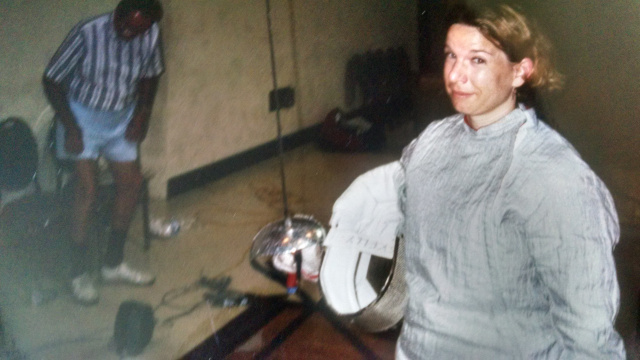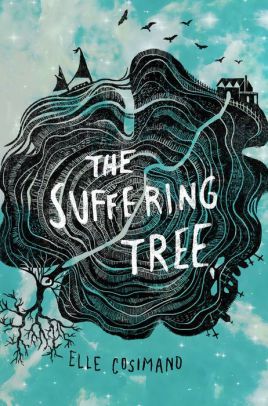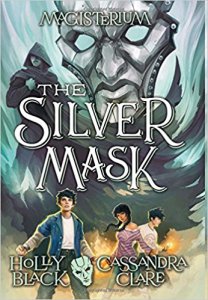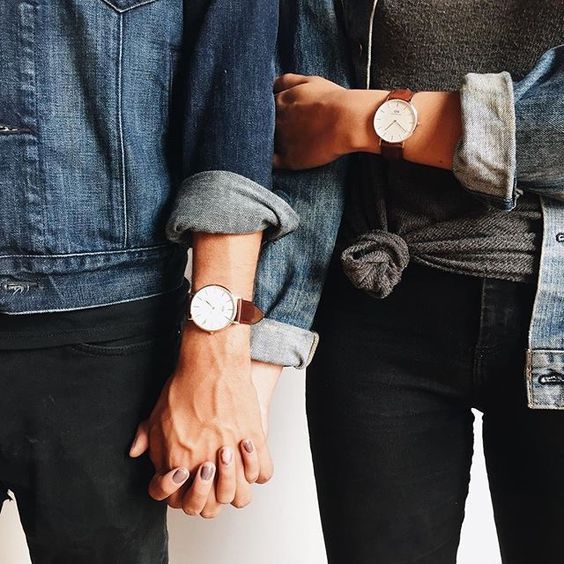By Caitlin Kelly

Well-behaved women seldom make history — Laurel Thatcher Ulrich, 1976
The photo above is me, age 37, fencing at nationals, among the women who made U.S. sports history by being the first to fence saber at that level.
Loved this recent column by stroppy British business journo Lucy Kellaway, initially published in the Financial Times:
Being difficult at work is not generally thought to be a good thing. On Amazon there are 1,387 titles on how to deal with difficult people, including Since Strangling Isn’t an Option. I failed to find a single volume called What to do When the Difficult Person is Me. Or How to be Difficult and Influence People.
As a columnist, being difficult is part of the job – if you do not enjoy sometimes getting up the noses of readers, you are too bland to be any good. Indeed, as a journalist, being personally difficult can serve you rather well. I can think of one or two writers who are so impossible their text is never tampered with. Their words invariably command pride of place because no editor can face the fuss that would result from doing otherwise.
Being difficult has other advantages too. It means that people tend not to lean on you for small favours. As one of the most important tricks to survival in the corporate world is to avoid grunt work, this makes it a powerful weapon. Being difficult also means you are likely to be better at getting your own way. It is a balancing act – you must be difficult enough to insist that things are done as you see fit, without being so difficult that people refuse to work with you.
In my first ever newspaper job, at 26, for the national daily Globe & Mail, I won that moniker as well.
I like it.
I’ve been reading Roxane Gay’s book of essays, Bad Feminist, in which she ponders the problem of being likable, of needing and wanting to be likable — and how playing along with the status quo so often weakens us as women.
“Even from a young age I understood that when a girl in unlikable, a girl is a problem. I also understood that I wasn’t being intentionally mean. I was being honest (admittedly without tact), and I was being human. It is either a blessing or curse that those are rarely likable qualities in a woman.
Women who stand up for themselves, and others, are often labeled “difficult” — as in non-pliable, not sufficiently obedient or deferential or polite or, worst of all, just not very “nice.”
Not friendly.
As though these were the most crucial attributes a woman can offer to the world.
A must-read book for every woman who wants to remain alive, safe and free from criminal predation is The Gift of Fear.
I was given it by a man I dated in 1998 — a con man, a convicted criminal I discovered had served time in Chicago and moved to New York where he found fresh victims, which included me. Being a lot more difficult would have kept me safe from him, but I was lonely, isolated and vulnerable to sustained attention.
This smart, tough book, written by a security expert, makes very clear that our wish to be seen as kind or welcoming, as unthreatening, can kill us.
Of course, no one wants to work with or live with or marry or be friends with someone who’s always a frosty bitch or a draaaaaaama queen or queen bee.
You can be “difficult” and still be someone people love deeply and respect the hell out of — it just might be a much smaller circle.
When I meet a woman, or hear about one whose accomplishments I admire, I rarely care if she is or was a likable person.
Better she be passionate, compassionate, principled, intelligent, articulate, active, connected, courageous.
As resistance to Donald Trump grows, one American writer credits women with reinvigorating the left.
From New York magazine:
Women, with women of color at front and center, can be the engines of new progressive activism in all arenas. It’s a rebuke to the theory floated by some on the left that there is a disjunction between “identity politics” and politics, a rebuke to those who suggested in the wake of Trump’s electoral win that the future lies in moving away from divisive “social issues” and identity-framed movements and back to economic policies.
What this event did, on the most massive scale we have seen in this country, is reaffirm what has always been true: The impact of identity bias has always been economic, and economic issues have always most powerfully disadvantaged those who experience identity bias. Or to put it another way: Women’s rights are human rights.
It takes guts and determination to fight oppression.
To ask for the job.
To speak truth to power.
To ask for a raise.
To leave a crappy marriage.
To stand up to a bully, even one who’s not talking to you. (Bitch!)
To challenge the status quo.
It also takes having some money in the bank, a fuck-you fund to pay the bills when the boss decides you’re just too annoying.
It’s difficult.
Are you a difficult woman? How’s that working out for you? Share this:- More





